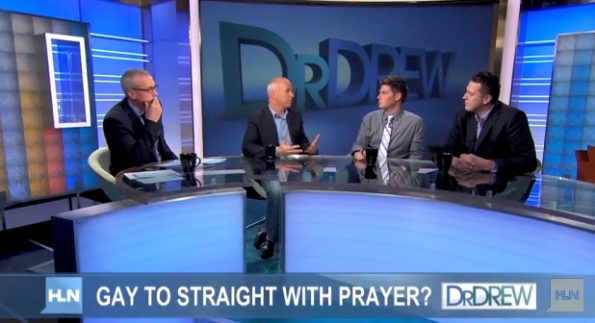“Rinth de Shadley, M.D.”
It’s “Doctor de Shadley” now.
Just thought you’d like to know.
If it makes you feel weird, take two aspirin and call me in the morning. 🙂
I hope that you are doing great!
–Rinth
Valediction
Farewell to Shadley
Compared to the age of the earth, or even to the much briefer age of the human race, it was barely a moment ago in 1837 that Mary Lyon founded Mount Holyoke. It was just a split-second later when, while taking care of a sick student, she fell ill herself and passed away.
And now, today, our commencement speaker asked: “What are people able to do and to be?”
More to the point would be the question: What are we able to do and to be?
We can do a lot, because we have been given a lot. Now, it’s our turn to start giving back: to our communities, to our societies, and to our world. To all our fellow human beings, great or small. To those who suffer poverty, disease, or injustice. To those who look like us and those who don’t. To those who follow our faiths and those who follow other paths.
And we can also be a lot. We can be people who set an example of leadership, compassion, and dedication to the good. We can be people who make Mary Lyon proud that she founded Mount Holyoke. We can be people who, as Mary Lyon said, “fear nothing in the universe but that we will not know all our duty or shall fail to do it.”
Today, we celebrate the opportunity that we had to attend one of the finest colleges on earth — with the most dedicated teachers, the most interesting fellow students, and a curriculum that challenged all of us to become better than our best. Today, we celebrate how we embraced that opportunity and met that challenge. Today, we celebrate both the achievements of yesterday and the possibilities of tomorrow.
But today we also leave behind a place, and a part of our lives, that changed us forever. To sally forth into the new, we must let go of the old. And when we let go of something we love, it hurts. Part of us will always be at Mount Holyoke, and the spirit of Mount Holyoke will always be within us.
The word “valediction” comes from Latin. “Vale” is the command form of valere, meaning to be strong or be well. The “diction” part comes from dicere, to say. To give a valediction means wishing you to be strong and to fare well on your journey through life. I wish that to all of you: to my fellow Mohos as well as to my teachers, family, friends, and readers.
Be strong and fare well: The world needs you.
Copyright 2011 by Rinth de Shadley.
Martha Nussbaum and Me
I’ve been super busy and I didn’t mention that our commencement speaker is Martha Nussbaum, who is Ernst Freund Distinguished Professor of Law and Ethics at the University of Chicago.
I actually wrote about Dr. Nussbaum back in January, when she published a book about the dangers and abuses of the Internet. She has some keen insights about the hazards of Internet anonymity, especially when it lets people attack others viciously and irresponsibly.
We’ve got our senior barbecue on Thursday, along with our “Class of 2011 Final Lecture,” which should be both informative and inspirational. And there are several other events. Then graduation. I’m still excited, happy, and sad about it, all at the same time.
Studying Naked
No, not me. Sophie Germain. I took a study break last night and was reading about her.
Unfortunately, I got absorbed in my reading and the next thing I knew, it was 2:30am. I’ve been sleepy all day. I know that I’m too young to be “too old for this,” but today I sure felt like it.
Sophie Germain (1776-1831) was a French mathematician who overcame sexual discrimination to achieve great things. She first got interested in mathematics by reading the books in her father’s library. But her parents disapproved of her interest because it wasn’t considered suitable for a young woman. So she started sneaking the books up to her bedroom at night and reading by candlelight.
When her parents found out — well, I guess it was a different era. And maybe her parents were a little crazy. They took away her clothes and kept her bedroom ice cold, but even being naked and freezing couldn’t stop her from studying mathematics. So they gave up trying to stop her.
French society hadn’t given up, of course. The university wouldn’t admit her as a student because she was a woman. To get her education, she eavesdropped at the doors of lecture halls and borrowed lecture notes from male students.
She started writing mathematical articles, using the pen name of Antoine LeBlanc to hide the fact that she was a woman. Eventually, she wrote to the greatest mathematician of the age, Carl Friedrich Gauss. When Gauss discovered her true identity, he became her dedicated supporter. He wrote that she had “the most noble courage, extraordinary talent, and superior genius.”
Urged by Gauss, in 1831 the University of Gottingen decided to award Germain a doctorate for her work in mathematics. That was an almost unheard-of honor for a woman in a sexist society. Sadly, Germain died before she could receive the award. But her example of courage and determination can still inspire us today. Even when we’re so tired that we feel like we’re “too old for this.” 🙂
(Blog post #195!)
Copyright 2011 by Rinth de Shadley.
Sex on the Brain
Warning: This blog post talks about sex. It’s no more explicit than you would see in a magazine like Glamour, but if you think it would offend you, please don’t read it.
In various blog posts (and in a few drunken monologues on weekends), I’ve already admitted that:
- I like Margaritas and Diet Cokes.
- I’m not fat, but am in no danger of ever being a size zero.
- I spend too much money getting coffee at the Dirty.
- I saw “Sisterhood of the Traveling Pants” five times in the theatre.
- I’ve got crushes on both Michael Cera and Rachel Maddow.
- Last year, I had a very confusing dream about JoJo.
And possibly most embarrassing of all:
- I read Glamour, Vogue, Teen Vogue, and other magazines that are bad for my self-esteem.
But those magazines aren’t always right. Glamour has an article titled “Six Secrets About His Man Parts” that is completely misleading about what turns guys on.
I can’t read guys’ minds and I’m not the world’s foremost expert, but I think that I understand them pretty well.
The mistake that guys make about themselves — but which is more surprising in a magazine for women — is to think that sex is mainly just physical. It’s not. (The article was written by a guy, so no surprise there.)
Even for guys, sex is mostly mental. It’s his brain that you need to target, not his penis. I’m not saying “hands off,” of course: at the right time, that closes the deal. But there’s much more to it than simply making a grab for his joystick, at least if you want the situation to go well.
A lot goes in in a guy’s brain* when it comes to sex. His “old brain” (the primitive parts of the brain) just wants to find a fertile female, impregnate her, and then go find another one to do it again. But his “old brain” is pretty stupid and doesn’t know or care if you’re using contraception. It just pushes him to engage in biologically programmed behaviors that, in pre-technological settings, maximize the number of his children in the next generation.
Speaking of which, here’s a theological view of the subject. God makes Adam and then says, “I’ve got good news and bad news.” Adam says, “Give me the good news first.” God says, “I gave you a brain and a penis.” Adam says, “What’s the bad news?” And God says, “I didn’t give you enough blood to run both of them at the same time.”
However, a human male is much more than just programmed behaviors. He’s aware of himself as a person. He needs to feel powerful: it’s one of those guy things. He needs to respect himself and feel that he is important in his social hierarchy. He needs to feel that he is desired and desirable. He’s an intelligent being and he thinks (who knew? 🙂 ).
He has also had unique experiences in his life that he associates with sexual excitement. Those sometimes have nothing to do with sex itself, but they excite him just as if they had everything to do with it. They can be objects, words, ideas, or situations that are like “on buttons” in his brain. Guys are often very shy about revealing those things, but if you can guess what the buttons are, go ahead and push them.
So the real way to interest and excite a guy is to remember that sex takes place on many levels: mental, emotional, instinctive, and physical — but mostly it takes place in his brain.
Excite his emotions, make him feel powerful, push his mental “on buttons” if you know what they are. And of course don’t forget to flip the switch on his old brain: Show him something sexy or new to stimulate him visually. Hit him with a fragrance. Do all the other stuff that everyone knows about. If a guy is repressed, even biting him (not there, and not hard enough to draw blood) can help. It stimulates him physically by causing pain, but it also surprises him and breaks up his conscious control. That frees his ability to act on his desires.
I didn’t intend to get quite so explicit, but all of that is true. It won’t be a big surprise to some people, but maybe it will be helpful to others.
(Blog post #194!)
______________________
* Of course, here I’m talking about straight guys.
Copyright 2011 by Rinth de Shadley.
We Can’t Read Minds
I had a thought.
No, it’s not the first time that has happened. Shut up. 🙂
I was angry at someone this morning because she said something that I thought “was meant to hurt me.”
But then I realized: Apart from what she actually said, I don’t know what she meant. It might have been just a careless remark. I have no way of knowing what was in her mind.
A lot of times we get upset because of what we assume about what other people are thinking, what they intend, or how they feel about us. But we have no first-hand way to know any of that.
Here’s what I think. When someone says or does something that we could interpret in a bad way — but which we could also interpret in a good way — then we should interpret it in the good way until and unless that’s proven wrong.
We will be happier and have more peace of mind. It’s also fairer to the other people.
And one other note: This is my 193rd blog post. I’d like to make it to 200 posts by graduation. If I can, I’ll post some graduation photos and thoughts for my 200th blog post.
Copyright 2011 by Rinth de Shadley.
Liberal Arts Grad = Starbucks Barista?
There’s the way the world should be. And there’s the way it actually is. It’s only sometimes that they are the same.
The Mount Holyoke News reports that liberal arts graduates are less likely to be recruited for jobs. According to a Wall Street Journal article about which colleges and universities recruiters favor:
The highest ranking schools on the list were Pennsylvania State University, Texas A&M University and University of Illinois at Urbana-Champaign—big public state universities with undergraduate enrollments of over 30,000 students.
Along with most other top-tier schools, MHC didn’t make the list. And the only Ivy that did make the list was Cornell.
The MH News article goes on at great length about liberal arts graduates’ learning abilities, versatility, and analytical thinking. And those qualities aren’t entirely worthless in the job market, according to ’07 graduate Maya Pillai:
Employers love liberal arts students for the flexibility in approach and easy adaptability to all kinds of jobs; and with the reputation MHC students have, employability rarely depends on just liberal arts vs. the regular schools,” she said.
Steve Koppi, director of the Career Development Center, urged students “not to believe the media hype:”
Koppi cited the NACE’s Job Outlook 2009 survey. According to the survey, the top five personal qualities employers look for are: communication skills (verbal and written) strong work ethic, teamwork skills (works well with others), initiative, and analytical skills. “All skills and abilities developed through a liberal education, like we offer at MHC,” Koppi said.
All true. We’ve got to believe in ourselves and that we’ve got a chance. We’ve got to value the knowledge, skills, and abilities that we’ve developed. That’s no guarantee of success, but sitting in a corner and crying is a guarantee of failure.
But I’d be less than honest if I pretended that the job market wasn’t scary. As intimidated as I am about starting med school, that’s not as intimidating as looking for a job after graduation.
Copyright 2011 by Rinth de Shadley.
Putting My Diagnosis Where My Mouth Is
Okay, so the title doesn’t make much sense.
I wanted to say something like “putting my money where my mouth is,” but that doesn’t connect with the topic of this post. Anyway, money is crawling with microbes and all kinds of awful stuff. You don’t want it anywhere near your mouth.
The Well blog on The New York Times today had a diagnosis contest under the title “Think Like a Doctor.” Since I’m going to be a doctor in a few years, I gave it a try.
The blog article was written by Lisa Sanders, M.D., who is a clinical professor of medicine at Yale University. She’s also technical advisor to the TV series “House, M.D.” and author of the book Every Patient Tells a Story.
Dr. Sanders described a patient’s history and symptoms, then challenged her readers to make the correct diagnosis. Hundreds of readers replied, including practicing physicians, nurses, and medical students. And me.
Since I’m not even in medical school yet, I don’t expect my diagnosis to be right. But it makes sense to me, and a lot of the other diagnoses that people wrote about don’t make sense to me.
The Patient’s History and Symptoms
Here’s the short version of the patient’s situation, obviously focusing on what I think is important. I encourage you to read the whole article on The New York Times site.
The patient was a 76-year-old woman previously in good health except for a few minor complaints (high blood pressure and low thyroid) that were well controlled with medication. Her mother, 99, had died a few weeks earlier.
The patient initially had intestinal bleeding for which she was hospitalized. A colonoscopy found that she had blood vessel abnormalities. She was treated without surgery and recovered, but she still complained about feeling very tired.
More tests revealed a heart valve abnormality that the patient had probably had for a long time. She had an elevated white blood cell count. Although white blood cells are involved in fighting infections, an elevated white blood cell count shows only that the patient’s immune system is “on red alert,” possibly due to an infection. There can be other causes.
The patient started having mood swings and behaving bizarrely. She was alternately manic and depressed. She still complained of extreme fatigue. An MRI of the patient’s central nervous system (including the brain) was normal. She developed dark spots and infected-looking lesions on the skin of her hands and arms. She gained weight.
That’s the essence of it. And people came up with a lot of diagnoses.
Proposed Diagnoses
Many of the people who replied came up with diagnoses that I considered and then rejected.
Lyme disease was one: it’s a bacterial infection spread mostly by tick bites. It causes seemingly unrelated symptoms like the woman had. The microbe is similar to that for syphillis, a sexually-transmitted disease that several people also suggested as the cause. People who have had those infections for years can develop dementia. However, there was no indication that the woman was at risk for Lyme disease or had syphillis, so I rejected those possibilities.
Other suggestions were Cushing’s disease (caused by too much stress hormone) and Lupus Erythematosus, an “autoimmune” disease in which the patient’s immune system attacks the patient’s own body. But neither of those would have developed over a period of a few weeks. The patient had a family doctor who had treated her for years, and who would have known if she had either of those conditions. I rejected those possibilities.
Some people suggested Creutzfeldt–Jakob disease, better known as “mad cow disease” that people can contract by eating infected beef. It’s a horrible disease, but it wouldn’t have developed over a period of a few weeks. Rejected.
Some people suggested that her medications had made her sick. That’s certainly possible, since “iatrogenic illness” (illness caused by medical treatment) is the third leading cause of death in the United States, right after heart disease and cancer. But I think that her first symptom was intestinal bleeding, and that occurred before she started treatment with all the new drugs. So although iatrogenic illness is a good guess, I rejected it.
A lot of people suggested vasculitis, which is kind of a non-specific disease of blood vessel inflammation. However, from the doctors in my family, I know that vasculitis is a “diagnosis of exclusion.” That means you diagnose someone with vasculitis when there’s obviously something wrong with them, but you’ve eliminated all the other possibilities and you can’t figure out what the problem actually is. Dr. Sanders wouldn’t have used that as a diagnostic challenge. Rejected.
My Diagnosis
I won’t find out if my diagnosis is correct until The Well blog is updated on Thursday, when Dr. Sanders has promised to reveal the answer. As I said, I don’t expect to get it right but will be thrilled if I do.
Here’s what I think. You can throw out most of the patient’s previous medical history because the onset was relatively sudden. Also, the intestinal bleeding strikes me as a symptom rather than a cause. The patient probably had the blood vessel malformations in her intestines for years. Something caused them to start bleeding.
Two facts are key:
- The symptoms appeared within a few weeks after she had been caring for her mother, who died. We can assume that she cleaned out her mother’s house, and that the house contained items that had been there for many years undisturbed.
- We want a diagnosis that explains fatigue, intestinal bleeding, dementia, elevated white count, and skin lesions.
My diagnosis: While cleaning out her mother’s house, the patient was exposed to black mold (Stachybotrys chartarum) and infected. Most of her symptoms resulted from the infection and from attendant mycotoxicosis from Tricothecene.
We’ll see on Thursday, April 21 if I was right.
And the Results Are In
Looks like I still have to go to medical school! 🙂
The correct diagnosis was Cushing’s syndrome, which I rejected because I thought that the patient’s symptoms developed too quickly and it wouldn’t explain the intestinal bleeding.
Apparently, however, the bleeding was unconnected. The Cushing’s syndrome was confirmed by a test that in a normal person should suppress blood levels of cortisol, a stress hormone. However, the test did not suppress the patient’s cortisol levels, which remained very high.
But the really exciting thing is …
Even though my diagnosis was wrong, Dr. Sanders commented on it in her blog. She said that my diagnosis was “very House-ian.” To me, that seems like a huge compliment, since she’s the medical advisor for “House, M.D.” and House is supposed to be a genius. I was excited about it, anyway. 🙂
Copyright 2011 by Rinth de Shadley.
Praying to be Straight? Why?
I was walking past a TV this afternoon when a talk show topic caught my attention: “Gay to Straight with Prayer?”
The show was “Dr. Drew” on the HLN news channel. I’ve never watched the show beyond the few seconds I saw today, but I know who Dr. Drew is. He’s a psychiatrist who graduated from medical school at the University of Southern California. Before that, he graduated from Amherst College, so he’s local to Shadley and he’s smart enough to get into Amherst. In other words, he’s no random homophobic nut.
From what I could tell, his guests included a fundamentalist Christian minister who wants to “cure” gays, a gay man who he supposedly cured, and a gay minister. I didn’t watch long enough to follow the discussion, but the viewpoints are easy to predict.
The fundamentalist minister probably cited the Bible’s Book of Leviticus to say that gays will burn in Hell. The ex-gay(?) man probably told about how he’s now married to a wonderful woman. And the gay minister pointed out that Leviticus prohibited many other things besides homosexuality, such as shaving and wearing clothes made from two kinds of cloth.
I Wasn’t Quite Right
I just watched some of the show on the Web so that I could grab the picture for this blog. My earlier guess about the fundamentalist minister wasn’t quite fair. He seemed much nicer than I expected, though he’s obviously still wrong about gays needing to be “cured.” The two men on the right side of the picture are a gay couple who met at the minister’s cure-the-gays program. They’re both still gay and are very happy.
People Should Be Happy
Now, I’m probably going to get in trouble with friends for saying this, but I think people can sometimes change their sexual orientation. Not always, but sometimes. Gays can become straight. Straights can also become gay, though I’ve never heard anyone bring up that option.
What makes it so radioactive to discuss changing sexual orientation is that it gets mixed up with a lot of other issues that really have nothing to do with it. It amounts to guilt by association.
Most people who talk about gays changing their sexual orientation are either nutty homophobes or self-hating gays. They believe that gay relationships are wrong, disgusting, an abomination, and all that hateful bigotry. So people think that it’s the only context in which gays might ever want to be straight or vice-versa.
As a future physician, I have what I consider a common-sense attitude: People should be happy. Helping them be happy and healthy will be my goal.
Two Options
If a patient of mine was gay and unhappy about it, we would have two options.
The first option is better. We would try to correct any mistaken beliefs or emotional biases that cause the unhappiness. Since being gay is a perfectly healthy form of human sexual expression, it’s better not to try to change that unless absolutely necessary. I would very strongly advocate the first option.
The second option is more difficult and risks reinforcing negative beliefs. If we’ve tried the first option but the patient just can’t be happy and gay, we could try to change that. Sexual orientation (gay or straight) has multiple causes, both biological and psychological. Some people’s sexual orientation is pretty much set in stone, and the second option won’t work for them. Other people’s orientation is more flexible. If they really want to change, and are absolutely determined to do it, then they can. I’m not saying it’s right or that I’d recommend it, but it’s an option. It shouldn’t be dismissed just because some of the people who push it are hateful homophobes.
Happiness is More Important Than Stereotypes
I reiterate: People should be happy — preferably by accepting and loving themselves as they are.
But if for some reason they can’t do it, we shouldn’t let ideology or stereotypes stand in the way of helping them be the people they want to be and having the lives they want to have.
Copyright 2011 by Rinth de Shadley.
Sneaky Scientists Undermine Patriotic Ignorance
According to the Boston Herald, a majority of Massachusetts residents think that global warming is real:
More than half of Massachusetts residents believe global warming is real and at least partially caused by human activity …
Now that might be only because Massachusetts is dominated by them godless libruls, Democrats, and Kenyans who want to take away everyone’s guns and require gay marriage for first-graders. As Stephen Colbert said, reality has a well-known liberal bias.
But global warming isn’t the only subject on which progressives, scientists, and other subversives have worked their insidious deceptions. Other polls reveal that:
- Only 40 percent of Americans deny the theory of evolution.
- Only 44 percent of Americans still believe that God created the world in six days.
- Only 43 percent of Americans believe that gay relationships are wrong.
- A full 59 percent of Americans believe it’s okay for unmarried people to have sex. That’s fornication! OMG, we are all doomed.
There’s only one reassuring statistic:
- About 60 percent of Americans are unsure why Justin Bieber exists. The other 40 percent have never heard of him. 🙂
Copyright 2011 by Rinth de Shadley.








Recent Comments